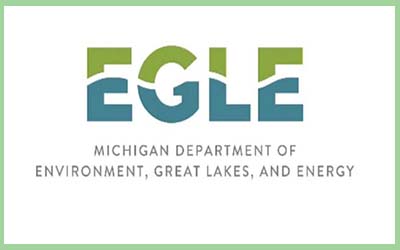aging adults can sign up for free online classes

Press Release FOR IMMEDIATE RELEASE: June 3, 2021 CONTACT: Bob Wheaton, 517-241-2112, wheatonb@ Michigan’s aging adults can sign up for free online classes offered by MDHHS to improve their brain health June is Alzheimer’s and Brain Awareness Month LANSING, Mich. – The Michigan Department of Health and Human Services (MDHHS) and GetSetUp are partnering to offer classes to improve brain health during June, which is Alzheimer’s and Brain Awareness Month. Healthy lifestyle choices can improve general health and can possibly protect the brain from Alzheimer’s disease. The MDHHS Aging & Adult Services Agency has a partnership with GetSetUp, a mission-driven education technology company dedicated to creating economic and learning opportunities for older adults. The partnership provides free virtual learning and social engagement opportunities for Michiganders ages 60 and over. The Alzheimer’s Association says regular physical exercise may be a beneficial strategy to lower the risk of Alzheimer’s and vascular dementia. Exercise may directly benefit brain cells by increasing blood and oxygen flow in the brain. Additionally, studies say that maintaining strong social connections and keeping mentally active as people age might lower the risk of cognitive decline and Alzheimer’s. “Dementia – including Alzheimer’s disease, which is the most common form – is an emerging public health crisis,” said Dr. Alexis Travis, who recently became senior deputy director for the MDHHS Public Health Administration and previously was senior deputy director of the Aging and Adult Services Agency. “An estimated 190,000 Michiganders age 65 and over are living with Alzheimer’s disease. That number is expected to grow to 220,000 by 2025. Brain health is a crucial component of healthy aging and we are pleased to offer these and over 150 classes on the GetSetUp platform to older Michiganders at no cost.” GetSetUp offers a wide variety of classes to empower older adults to connect with others and stay healthy, including:
“We have designed GetSetUp online classes and events to provide the physical, mental and social activities that are so critical to healthy living as we work toward a day when we can all age-in-place,” said Lawrence Kosick, co-founder of GetSetUp. “And starting in June, we’re excited to be able to offer even more programming to support brain health and education around dementia and Alzheimer’s disease. With over 80,000 of Michiganders over age 60 already benefiting through our partnership with MDHHS, we’re excited to be able to expand our content in the areas that are most needed and support even more older adults in Michigan.” Michiganders age 60 and over may enroll in any GetSetUp session at no cost by visiting getsetup.io/michigan and using the code MICHIGANHEALTH or by calling 888-559-1614. For more information about Alzheimer’s disease and dementia, contact the Alzheimer’s Association at alz.org or 800-272-3900. |



 June 12-13, residents and out-of-state visitors can fish, ride Michigan’s off-road trails or visit state parks and state-managed boating access sites – all for free.
June 12-13, residents and out-of-state visitors can fish, ride Michigan’s off-road trails or visit state parks and state-managed boating access sites – all for free.
 Several state parks will host introductory classes in June to help newcomers get started with turkey and pheasant hunting and archery.
Several state parks will host introductory classes in June to help newcomers get started with turkey and pheasant hunting and archery.
 Starting this month, the DNR Outdoor Skills Academy will offer classes at the
Starting this month, the DNR Outdoor Skills Academy will offer classes at the  With many of the Michigan History Center’s museums and historic sites around the state now open for the summer season, there are plenty of opportunities to explore Michigan’s stories wherever your travels take you.
With many of the Michigan History Center’s museums and historic sites around the state now open for the summer season, there are plenty of opportunities to explore Michigan’s stories wherever your travels take you.




